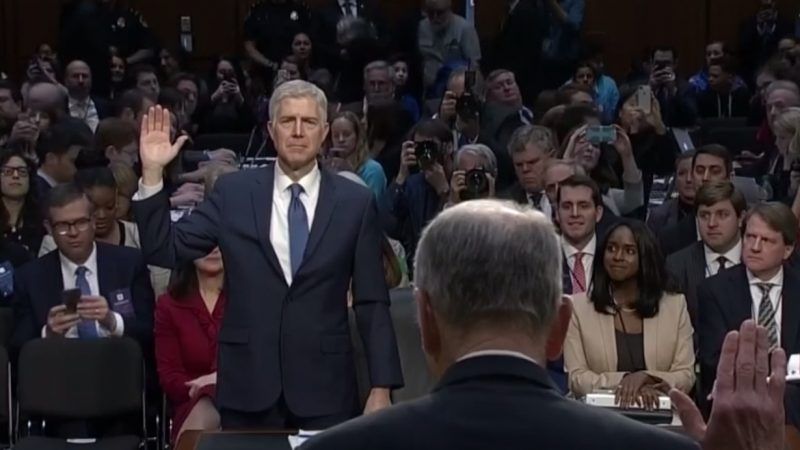A Leftist Makes the Case for Originalism
What’s worse for the left, a conservative originalist or a conservative living constitutionalist?

In the April 2019 issue of the Michigan Law Review, Indiana University law professor Ian Samuel, a self-described member of the "political left," assesses the recent book The Justice of Contradictions: Antonin Scalia and the Politics of Disruption. That book's author, another left-wing law professor, Rick Hasen of the University of California, Irvine, argues that originalism, the method of constitutional interpretation favored by the late Justice Scalia, is basically just a sham. According to Hasen, originalism is always principally "driven by ideology" and "results-oriented." The "notion that judges can use originalist methods to 'find' or 'discover' the law, rather than make it," Hasen writes in The Justice of Contradictions, is an "illusion" and should be dismissed as such.
Samuel takes a different view. In fact, he argues, "for a person on the political left, in the contingent historical circumstances" of the present day United States, "it would be disastrous as a practical matter to accept or profess [Hasen's] position." Why? Because, Samuel argues, originalism is "demonstrably capable—at least in some cases!—of getting otherwise conservative judges to vote for outcomes that they may not personally like. Given that the Supreme Court may be in the hands of conservative judges for the next twenty-five years, if you are on the political left (as Hasen is, and as I am), some account of how to restrain those conservative judges is of the highest priority."
There is some practical wisdom in this provocative analysis. Given the choice between a conservative originalist and a conservative living constitutionalist, it seems quite clear that liberals should pick the originalist. Living constitutionalism, as Woodrow Wilson (one of the doctrine's earliest theorists) once explained, holds that if the Constitution cannot "adapt itself to the measure of the times," it "must be thrown off and left behind, as a bygone device." In other words, if the written Constitution imposes an unwelcome limit, a living constitutionalist may feel free to ignore that limit. Would liberals really prefer an openly right-wing version of that on today's Supreme Court?
Here's another way of thinking about this topic: Would liberals prefer a justice in the mold of Samuel Alito or a justice in the mold of Neil Gorsuch?
Among the Supreme Court's current Republican appointees, Alito is arguably the least originalist—or perhaps it would be more accurate to say that he is the most skeptical of originalism. For example, during the November 2010 oral arguments in Schwarzenegger v. Entertainment Merchants Association, which dealt with California's restrictions on the sale of violent video games to minors, Alito mocked Scalia's originalist-minded questioning of the state's supervising deputy attorney general. "I think what Justice Scalia wants to know is what James Madison thought about video games," Alito sneered. "Did he enjoy them?"
"No," Scalia shot back, the annoyance evident in his voice. "I want to know what James Madison thought about violence. Was there any indication that anybody thought, when the First Amendment was adopted, that there—there was an exception to it for—for speech regarding violence?"
In contrast to Alito, Neil Gorsuch has emerged as one of the Court's biggest advocates of originalism since he joined the bench two years ago. And that commitment to originalism has led Gorsuch to clash repeatedly with Alito in Fourth Amendment cases. For instance, during the November 2017 oral arguments in Carpenter v. United States, which dealt with the warrantless government acquisition of cell phone records, Gorsuch, as I noted at the time, "proffered a property rights argument that might allow Carpenter to win the case, and Alito came out swinging hard against it." Several months later, that dynamic repeated itself during the oral arguments in Byrd v. United States, with Gorsuch and Alito butting heads over privacy, property, and the right to be free from unreasonable searches and seizures.
In short, if you are a member of the political left, and you are trying to take the measure of originalism, you might want to ask yourself this question: Would you rather see Alito or Gorsuch write the majority opinion in a Fourth Amendment case?


Show Comments (54)